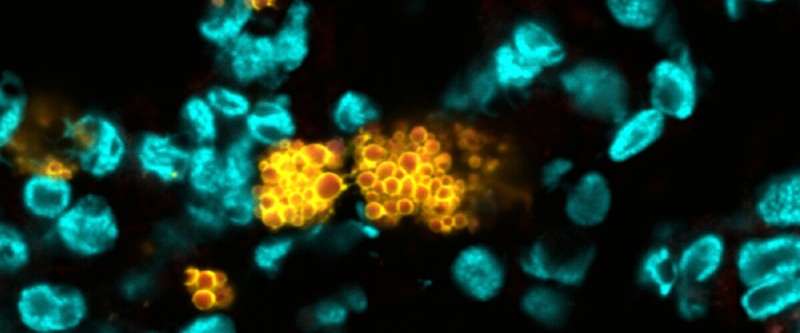Harnessing synthetic biology to co-produce high-value terpenoid biomaterials and biofuel in plants

Michigan State University scientists have developed synthetic biology tools to co-produce high-value compounds in plants. The study is published today in the journal Nature Communications.
Terpenoids form the largest class of natural products in plants and have been used by humans for thousands of years. Modern applications for terpenoids range wide, from pharmaceuticals, fragrances, nutraceuticals, biopesticides to chemical feedstocks. However, in the context of industrial scale production, plant accumulation of terpenoids is rather low. And, in the pursuit to extract natural terpenoids, some wild plant species have even become endangered.
"We investigated novel strategies to sustainably produce high-value terpenoid biomaterials in plants", says Radin Sadre, Synthetic Biologist/Biochemist in the Department of Horticulture. Sadre is the lead author of the study conceived by Christoph Benning, MSU-DOE Plant Research Laboratory director and Bjoern Hamberger, Assistant Professor in the Department of Biochemistry and Molecular Biology.
The new synthetic biology tools allow to produce both terpenoids and oil, a biofuel resource, in plant leaves. Plants do not normally accumulate large amounts of oil in leaves. Benning's work on plant oils and lipids served as a basis to enhance the oil content in leaves. The oil is stored in plant cells in small lipid droplets that are surrounded by a lipid layer coated with proteins.
The study shows that expand iconlipid droplets can themselves serve as an engineering platform for terpenoid production. The Hamberger lab focuses on metabolic engineering of terpenoid biosynthetic pathways.
Normally, terpenoid biosynthesis occurs at specific sites within the plant cells. The synthetic biology approaches retarget and boost the production of the terpenoid building blocks and terpenoids in engineered plants.
"We used a lipid droplet surface expand iconprotein from a microalga to anchor different terpenoid synthesis expand iconenzymes onto the surface of the plant lipid droplets", Sadre says. "Targeting of distinct terpenoid synthesis steps to the lipid droplets leads to efficient production of terpenoids."
These experiments were done at laboratory scale in the tobacco relative, Nicotiana benthamiana. But, the ultimate goal is the production of industrially relevant terpenoids in high-yield biomass crops, such as switchgrass.
Another feature of this system is that the terpenoids are trapped in the lipid droplets. This finding may prove useful in the future for industrial processing of engineered biomass crops.
Sadre says, "Once we break open the plant cells in the lab, we can easily collect the lipid droplets – basically, oil – with the terpenoids simultaneously. I can see many applications where both can be used together, for example, certain 'essential oils' in perfumes or speciality biofuels."
"Alternatively, further processing can separate terpenoids from the oil for applications where purer compounds are required."
More information: Radin Sadre et al. Cytosolic lipid droplets as engineered organelles for production and accumulation of terpenoid biomaterials in leaves, Nature Communications (2019). DOI: 10.1038/s41467-019-08515-4
Journal information: Nature Communications
Provided by Michigan State University





















